Do you love the convenience of protein powder, but wonder how it can be used while you’re on the ketogenic diet?
Read on for a breakdown of everything you need to know about keto protein powder.
I’ll explain exactly how to use keto protein powder without throwing off your macros. You’ll also learn what red flag ingredients to skip in your next purchase and some of the best ways to use keto protein powder in your day-to-day life.
But first… is it necessary?
DO I NEED A PROTEIN POWDER ON THE KETOGENIC DIET?
The short answer to this question is… no. Technically, nobody “needs” a protein powder when following a ketogenic diet.
Even though you don’t need it, keto protein powder can be super beneficial to you, if you pick the right one.
Getting more varied forms of protein in your diet can:
- Protect you from bone loss as you age (1,2)
- Reduce your risk of menopause-related hip fractures (3)
- Help you build muscles and have stamina for exercise (4)
- Promote healthy aging and good bone, joint and skin health (5,6)
- Support healthy weight
- Keep blood sugar within the normal range (7) – this is just one reason why low carb protein powders are some of the best protein powders for diabetics
- Make you feel fuller (8)
- Give your mood a boost (9)
There are several different kinds of protein to consider, too.
Whey Protein Powder
This one’s probably the most popular because of its low cost. When you use a keto friendly protein powder made from whey, you’ll need to watch out for some unnecessary fillers, which tend to be more common here. However, your body is able to metabolize whey protein more than other kinds of protein because it’s the most “bioavailable” (4).
You’ll find that whey protein is one of the best choices for working out, especially during resistance exercise (10). Just be sure to choose grass-fed whey.
Whey protein comes from milk, so anyone with a milk protein allergy or lactose intolerance should probably steer clear.
Casein Protein
Using casein protein is useful if you want to stay fuller longer. Because it digests slowest of all the proteins, casein provides your body with amino acids for several hours (11). Because of this, it’s thought of as a great protein for weight loss.
Beef Protein
Beef protein is less popular than whey and casein, but it might be just as awesome for fitness. Using beef protein has helped some athletes build even more muscle mass than whey protein, according to one study (12).
Bone Broth Protein
Formulated from nutritious bone broth, this type of protein powder can help boost your collagen levels. It’s rich in other nutrients that aren’t typically found in other protein powders, like glucosamine and chondroitin, which support better joint function.
Bone broth also helps to reduce inflammation and may support better immunity (13). Plus, it’s another complete protein source and supports muscle building and all the other great health benefits of keto protein powder.
Collagen Protein
Several varieties of collagen protein are available in the form of multi collagen protein powder or collagen peptides. As you age, your collagen production slows, so it can be helpful to consume more collagen protein to keep joints healthy.
Bonus: collagen protein is also good for your skin, hair and nails (14).
If you’re looking for a keto-friendly collagen supplement that is good for skin, gut, and overall wellness checkout our Beauty Collagen Complex powder.
Plant-Based Protein (Hemp, Rice, Pea Protein, Soy, Brown Rice, etc.)
If you’re going for muscle building, plant protein powders aren’t always the best option. Plant proteins aren’t “complete” proteins, meaning you’ll have to mix and match them to get all the amino acids you need.
However, some of these contain unique nutrients you probably won’t find in an animal-based protein. For example, hemp, pea and brown rice proteins all contain compounds that support a healthy heart (15,16,17).
A word of caution with plant-based proteins — I do not suggest using soy protein. Soy is a xenoestrogen that can cause estrogen dominance.
Regardless of your gender, estrogen dominance is associated with a ton of problems like infertility, erectile dysfunction, mood issues and more. Just avoid soy. There are far better protein options available.
BENEFITS OF KETO PROTEIN POWDER
Using a macro-balanced keto protein powder can definitely bump up your success on the diet while improving your ability to stay in ketosis.
The major benefits of keto protein powder include convenience, better exercise performance and cost savings.
First of all, I am a big fan of protein powder because it just makes life a little more convenient. Combining keto-friendly foods like kale, spinach, MCT oil and others with a keto protein powder can result in a delicious keto protein shake that takes only a few minutes to make.
One frequent concern athletes have going on the ketogenic diet is a loss of exercise performance. While research shows that’s actually a keto diet myth, you might find it’s a little harder to build muscle growth when you’re eating mostly fats.
When you’re heading into a workout, pack some keto protein powder into a smoothie to give you that extra boost of muscle-building potential.
Using protein powders is easier on your wallet, too. If you’re opting for grass-fed and free-range proteins in your weekly meal planning, I’m sure you notice the price tags.
But when you use a keto protein powder, you can get more grams of protein for less money.
DRAWBACKS OF KETO PROTEIN POWDER
Before you jump into a new routine with keto protein powder, consider the downsides and precautions.
When you’ve dramatically reduced your carb intake, your body will convert a lot of protein into sugar instead, which can make it difficult to get into ketosis and stay there.
Remember those keto macros? There’s a reason protein intake is supposed to be only about 10-20 percent of your daily calorie intake. Actually, that’s what sets keto apart from a low-carb diet like Atkins.
There’s definitely benefits to starting your day with one of many yummy keto protein shake recipes, but don’t let it overwhelm your macros.
(Read: your shake should also have plenty of healthy fats in it.)
Other drawbacks of keto protein powder actually don’t have much to do with keto, but with protein powders in general. Some manufacturers pad the taste or nutritional details of their products with unsavory ingredients that do more harm than good for your health.
I’ll go into more detail about those below, but if you’ve really bought into the ketogenic lifestyle, there are definitely some ingredients to avoid.
I’m not just talking about the person eating lots of fats, no matter the source.
I’m talking to you, the one who decided to nix all vegetable oils, soy, artificial sweeteners and rid your life of all the harm they cause.
For you, there are some specific ways to choose the best keto protein powder.
HOW TO CHOOSE A KETO PROTEIN POWDER
My first suggestion when you’re browsing for your next can of protein is to decide first what you do hope to see on the nutrition facts panel.
Are you okay with getting a low-carb protein powder that’s simply low in carbs and fat? If you have other ways to incorporate fat into the smoothies and meals you’re making with this protein, that’s completely fine.
Concerned about getting enough fat? Several keto protein powders out there are made with healthy fats like MCT oil. Look for a blend that has similar grams of protein to fat.
Getting a little older? A keto protein powder that also has joint-supporting ingredients is probably a great choice, like bone broth protein or collagen protein.
Hoping to boost muscle mass? Opt for a keto protein powder made from whey, beef or bone broth.
Still in the major weight loss phase? You should start with casein protein for the fat-busting digestive benefits it offers.
Kind of hate the consistency of protein powders? Not really into smoothies? Every person is different, so if smoothies (or traditional protein powder) aren’t your thing, try a high-quality collagen protein. Good collagen protein mixes with no taste or added consistency into anything — coffee, soups or even water.
Not sure what you want? Many keto protein powders are available, so take your pick! Some companies even offer sample packs so you can try them before investing your hard-earned money in a full canister.
HERE’S WHAT YOU WANT:
These three things are the good stuff you can look for in your next protein powder:
Good macros
If you’ll use this protein powder for a meal replacement keto protein smoothie, you might be able to get away with up to 4-5 net carbs per serving. However, the lower the carb count, the better so that you don’t kick yourself out of ketosis. Brands with healthy fats might even offer similar amounts of protein to fat.
High-Quality Protein Sources
Protein from grass-fed cows that are free of hormones and antibiotics is ideal. Sure, this might mean you spend a few more bucks. But grass-fed animals produce better nutrient profiles.
They even contain vitamin K2 in much larger quantities than conventionally raised animals. K2 is associated with a reduced risk of just about… well, almost every major disease on the planet (19). The antibiotics and growth hormones used in conventional farming are also not worth it.
Supporting ingredients
I love using products that are made with the whole body in mind. Some of my favorite protein powders contain not only high-quality proteins (and fats), they also use superfood ingredients like apple cider vinegar, reishi mushrooms or ashwagandha.
Not every brand carries this kind of blend, but it might be something to consider as you shop.
HERE’S WHAT TO AVOID:
You don’t add unnecessary fillers to your dinner prep, so why drink them in your protein powder?
If you see any of these ingredients listed on a protein powder label, pivot to a different choice.
Artificial sweeteners
A great taste isn’t worth sacrificing your health to get. Some artificial sweeteners may even cause cancer down the road! Others are associated with weight gain (zero calories doesn’t actually make them weight-loss friendly!), diabetes risk, neurological problems and more.
Stevia and monk fruit are the only sweeteners I use on keto, as they support better health.
Divert from these artificial sweeteners:
- Aspartame/NutraSweet (seriously, this one’s the worst)
- Sucralose/Splenda
- Sugar alcohols (erythritol, xylitol, sorbitol etc.)
- Acesulfame K
- Saccharin
Soy of any kind
Remember how I mentioned that soy is a xenoestrogen? That just means anything that mimics the estrogen your body produces. These are also called endocrine/hormone disruptors and cause more problems than I can list here today.
Pick a keto protein powder free of soy.
High sodium
There will be some natural sodium in protein powder, but some brands have very high sodium levels. You do need plenty of sodium/salt while you’re on the keto diet, but your protein powder should ideally have under 200 grams per serving of sodium.
Artificial flavors
Sort of like the word “fragrance” on your personal care products, “artificial flavors” can mean just about anything. Cut protein powder options that don’t explain what they use to add flavor.
Vegetable oils
These low-quality, inflammation-producing oils are technically high in fat but do nothing to benefit you on keto. (Did I mention they take a really long time to metabolize?) Look for fat sources in keto protein powder like MCT or coconut oil; nix choices with vegetable oils.
WAYS TO USE KETO PROTEIN POWDER
If you’re like me, you appreciate variety in life. Keto protein powder offers just that — depending on what you get, there’s almost endless possibility for how to use it!
The simplest way to use your new protein is in a keto protein shake.
Keto protein shakes are great for:
- Before and/or after your workout
- Travel
- Quick breakfasts
- Snacks
But shakes are just the beginning… I also use keto protein powder in my coffee from time to time. It goes great in keto protein pancakes or brownies, too!
Check out some of these recipes I love:
KETO PROTEIN SHAKE RECIPES
Keto Cinnamon Almond Butter Breakfast Shake
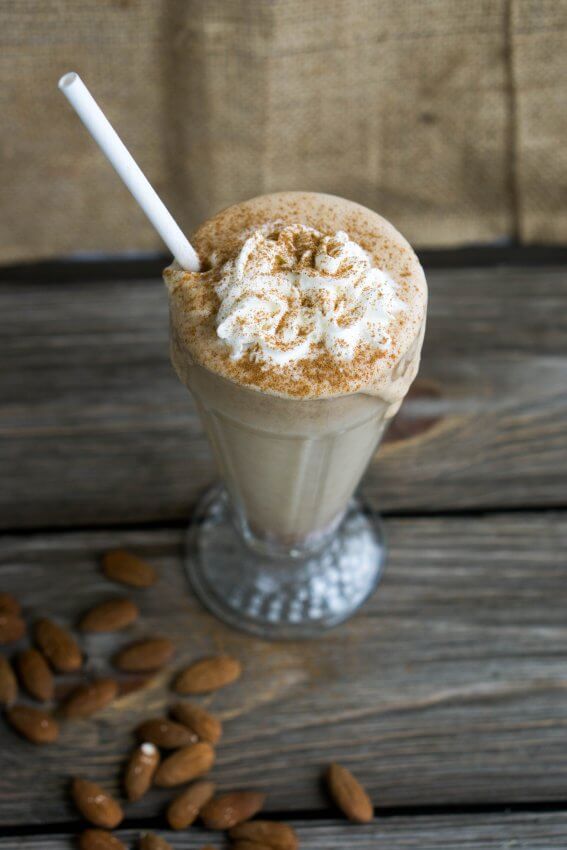
(I Breathe I’m Hungry, 2017)
If that doesn’t look decadent, I don’t know what does. This keto cinnamon almond butter breakfast shake not only includes a scoop of collagen protein, it features eight more grams of fat than protein!
Plus, this keto protein shake uses golden flax meal to provide you with extra fiber.
One of these shakes has six net grams of carbohydrates, 27 grams of fat and 19 grams of protein.
Keto Iced Coffee Protein Shake
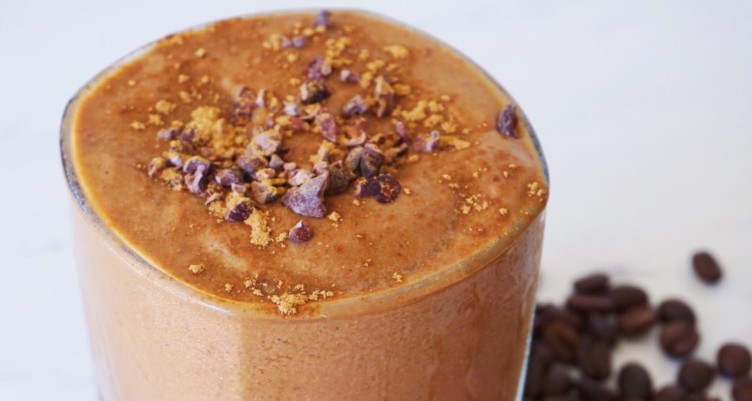
(Bulletproof, 2018)
Another fat-friendly shake recipe, this Keto Iced Coffee Protein Shake by Bulletproof includes two of my favorite things: coffee and healthy fats.
They include a scoop of vanilla keto protein powder, ½ an avocado and almond or full-fat coconut milk to round out the macros.
This delicious recipe contains 5.5 net carbs, 19 grams of fat and 17 grams of protein.
Low Carb Strawberry Cheesecake Smoothie
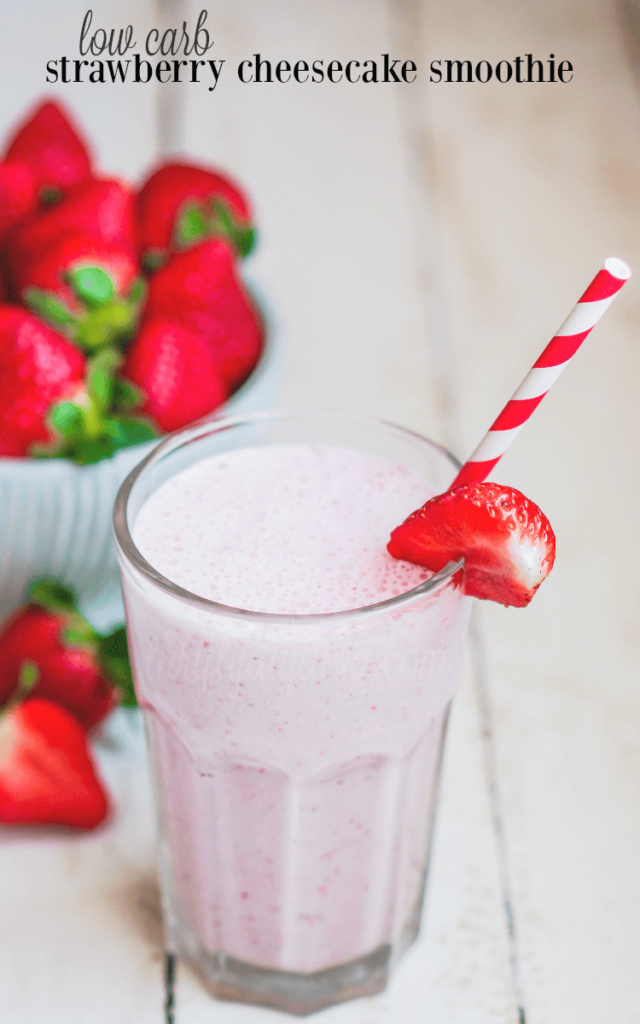
(Thrifty DIY Diva, 2016)
I admit, this one’s a little bit of a hack. But it’s so tasty, I wanted to share it with you, too!
This Low Carb Strawberry Cheesecake Smoothie doesn’t recommend using keto protein powder, but I decided to add it in myself. For this one, I chose a vanilla keto protein that includes bone broth-derived protein as well as healthy fats.
With this keto protein shake, you’ll get 7.9 net carbs, 18.7 grams of protein and an astounding 38.8 grams of fat!
It also tastes like you really are getting strawberry cheesecake in smoothie form, which is a huge perk.
KETO PROTEIN POWDER COFFEE
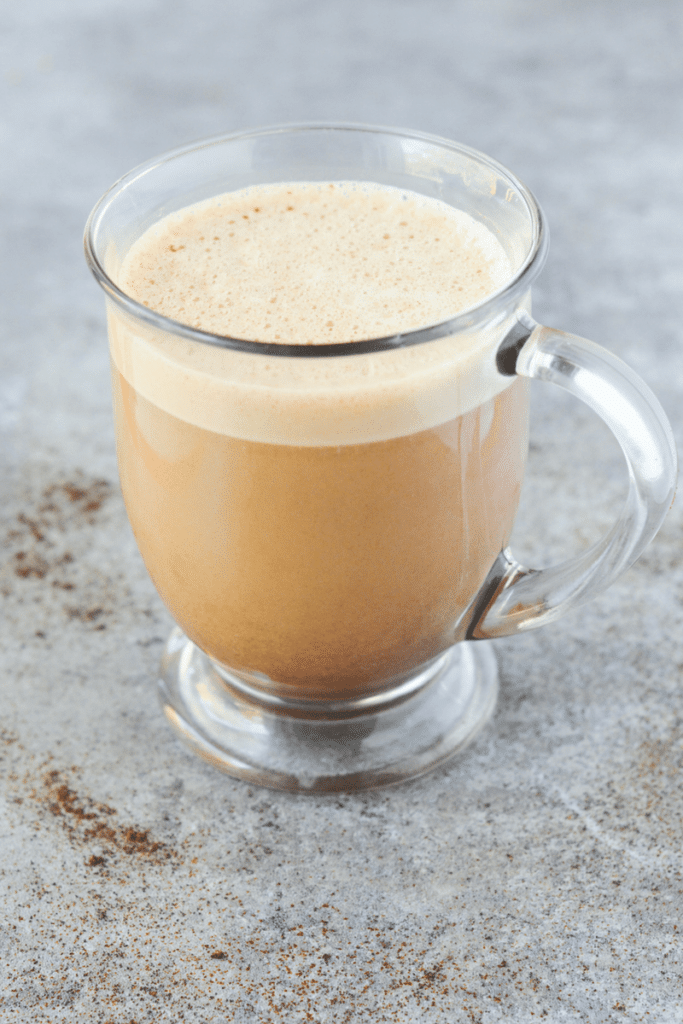
(Hey Keto Mama, 2017)
Coffee: it’s not just for shakes anymore!
If you aren’t into freezing cold brew cubes for the keto protein shake recipe above, try this Easy Keto Protein Coffee instead.
The internet is full of keto coffee suggestions, but I love this one because it’s divinely filling and tastes incredible.
Try an unflavored keto protein powder, or experiment with your favorite flavored brand to mix it up.
Macros for this keto protein shake include 2.1 net carbs, 27 grams of protein and 26 grams of fat.
KETO PROTEIN PANCAKES

(Low Carb with Jennifer, 2017)
If your family misses pancakes as much as mine, you’ll be delighted to try these amazing Protein Pancakes. Unlike a lot of the recipes out there for Paleo or gluten-free pancakes, there’s not a banana or oat to be found in this recipe.
And did I mention you’ll only need four ingredients?
A serving of these keto protein pancakes provides 2.8 net carbs, 6.2 grams of fat and an astounding 28 grams of protein. (Just make sure to pair these with a high-fat item, like a dollop of grass-fed butter!)
OUR FAVORITE KETO PROTEIN POWDERS
Ancient Nutrition
In our house, we like to use Ancient Nutrition protein powders. We’re friends with Dr. Josh Axe, one of the founders of Ancient Nutrition, and really believe in his commitment to formulations that use superfood ingredients and no unnecessary fillers.
For a simple, unflavored protein powder, go for Bone Broth Protein™ Pure. Keep in mind that this protein powder contains no fat, so you’ll need to mix it with some fatty goodness.
Ancient Nutrition also carries a line of Keto PROTEIN flavors that utilize both bone broth-derived protein powder with healthy fats from MCTs and coconut oil.
These are seriously delicious products and are unlike anything else I’ve found!
PurePaleo
Not into bone broth or just looking for another option? You’ll love PurePaleo’s varieties of keto protein powders.
They offer yummy chocolate flavors of both Beef Protein and Whey Protein.
Now, I want to hear from you.
What’s your favorite type of protein powder on the keto diet? If you haven’t tried any, which kind are you most interested in using first? Let me know in the comments below!
For more keto-friendly supplements check out our Superfood Supplement line.
Sources:
- Hannan, M. T., Tucker, K. L., Dawson‐Hughes, B., Cupples, L. A., Felson, D. T., & Kiel, D. P. (2000). Effect of dietary protein on bone loss in elderly men and women: the Framingham Osteoporosis Study. Journal of Bone and Mineral Research, 15(12), 2504-2512. Full text: https://onlinelibrary.wiley.com/doi/full/10.1359/jbmr.2000.15.12.2504
- Daneault, A., Prawitt, J., Fabien Soulé, V., Coxam, V., & Wittrant, Y. (2017). Biological effect of hydrolyzed collagen on bone metabolism. Critical reviews in food science and nutrition, 57(9), 1922-1937. Abstract: https://www.tandfonline.com/doi/abs/10.1080/10408398.2015.1038377?src=recsys&journalCode=bfsn20
- Munger, R. G., Cerhan, J. R., & Chiu, B. C. (1999). Prospective study of dietary protein intake and risk of hip fracture in postmenopausal women–. The American journal of clinical nutrition, 69(1), 147-152. Full text: https://academic.oup.com/ajcn/article/69/1/147/4694172
- Jäger, R., Kerksick, C. M., Campbell, B. I., Cribb, P. J., Wells, S. D., Skwiat, T. M., … & Smith-Ryan, A. E. (2017). International society of sports nutrition position stand: protein and exercise. Journal of the International Society of Sports Nutrition, 14(1), 20. Full text: https://www.ncbi.nlm.nih.gov/pmc/articles/PMC5477153/
- Figueres, T. J., & Basés, E. P. (2015). An overview of the beneficial effects of hydrolysed collagen intake on joint and bone health and on skin ageing. Nutricion hospitalaria, 32, 62-66. Abstract: https://www.ncbi.nlm.nih.gov/pubmed/26267777
- Proksch, E., Segger, D., Degwert, J., Schunck, M., Zague, V., & Oesser, S. (2014). Oral supplementation of specific collagen peptides has beneficial effects on human skin physiology: a double-blind, placebo-controlled study. Skin pharmacology and physiology, 27(1), 47-55. Abstract: https://www.ncbi.nlm.nih.gov/pubmed/23949208
- Westerterp-Plantenga, M. S., Nieuwenhuizen, A., Tome, D., Soenen, S., & Westerterp, K. R. (2009). Dietary protein, weight loss, and weight maintenance. Annual review of nutrition, 29, 21-41. Abstract: https://www.ncbi.nlm.nih.gov/pubmed/19400750
- Leidy, H. J., Tang, M., Armstrong, C. L., Martin, C. B., & Campbell, W. W. (2011). The effects of consuming frequent, higher protein meals on appetite and satiety during weight loss in overweight/obese men. Obesity, 19(4), 818-824. Full text: https://www.ncbi.nlm.nih.gov/pmc/articles/PMC4564867/
- Marriott, B. M. (1994). Effects of Nutrients on Neurotransmitter Release. Full text: https://www.ncbi.nlm.nih.gov/books/NBK209058/
- Naclerio, F., Alkhatib, A., & Jimenez, A. (2013). Effectiveness of whey protein supplement in resistance trained individuals. Journal of Sports Medicine & Doping Studies, 3(3). Full text: https://www.researchgate.net/publication/259532936_Effectiveness_of_Whey_Protein_Supplement_in_Resistance_Trained_Individuals
- Hoffman, J. R., & Falvo, M. J. (2004). Protein–which is best?. Journal of sports science & medicine, 3(3), 118. Full text: https://www.ncbi.nlm.nih.gov/pmc/articles/PMC3905294/
- Sharp, M., Shields, K., Lowery, R., Lane, J., Partl, J., Holmer, C., … & Wilson, J. (2015). The effects of beef protein isolate and whey protein isolate supplementation on lean mass and strength in resistance trained individuals-a double blind, placebo controlled study. Journal of the International Society of Sports Nutrition, 12(Suppl 1). Full text: https://www.ncbi.nlm.nih.gov/pmc/articles/PMC4595383/
- Rennard, B. O., Ertl, R. F., Gossman, G. L., Robbins, R. A., & Rennard, S. I. (2000). Chicken soup inhibits neutrophil chemotaxis in vitro. Chest, 118(4), 1150-1157. Abstract: https://www.ncbi.nlm.nih.gov/pubmed/11035691
- Chen, P., Cescon, M., & Bonaldo, P. (2015). Lack of collagen VI promotes wound-induced hair growth. Journal of Investigative Dermatology, 135(10), 2358-2367. Full text: https://www.jidonline.org/article/S0022-202X(15)41799-3/fulltext
- Swanson, D., Block, R., & Mousa, S. A. (2012). Omega-3 fatty acids EPA and DHA: health benefits throughout life. Advances in nutrition, 3(1), 1-7. Full text: https://www.ncbi.nlm.nih.gov/pmc/articles/PMC3262608/
- Li, H., Prairie, N., Udenigwe, C. C., Adebiyi, A. P., Tappia, P. S., Aukema, H. M., … & Aluko, R. E. (2011). Blood pressure lowering effect of a pea protein hydrolysate in hypertensive rats and humans. Journal of agricultural and food chemistry, 59(18), 9854-9860. Abstract: https://www.ncbi.nlm.nih.gov/pubmed/21854068
- Zhang, H., Bartley, G. E., Mitchell, C. R., Zhang, H., & Yokoyama, W. (2011). Lower weight gain and hepatic lipid content in hamsters fed high fat diets supplemented with white rice protein, brown rice protein, soy protein, and their hydrolysates. Journal of agricultural and food chemistry, 59(20), 10927-10933. Abstract: https://www.ncbi.nlm.nih.gov/pubmed/21913675
- Paoli, A., Grimaldi, K., D’Agostino, D., Cenci, L., Moro, T., Bianco, A., & Palma, A. (2012). Ketogenic diet does not affect strength performance in elite artistic gymnasts. Journal of the International Society of Sports Nutrition, 9(1), 34. Full text: https://www.researchgate.net/publication/230572065_Ketogenic_diet_does_not_affect_strength_performance_in_elite_artistic_gymnasts
- Levy, Jillian. (2018). Vitamin K2 foods, benefits, recipes & more. Retrieved from: https://draxe.com/vitamin-k2/


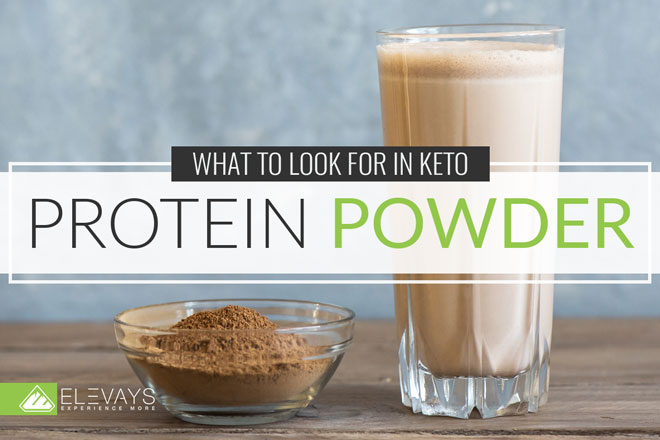






Great Post.